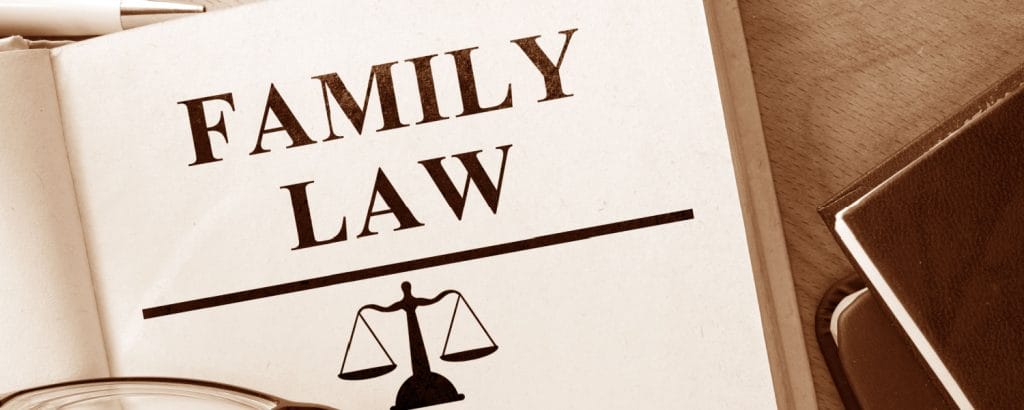Family court cases often involve a wide range of complex emotional and legal issues, from divorce and child custody disputes to spousal support and domestic violence matters. When parties involved in a family court case cannot reach an agreement on key issues or events, the court may schedule an evidentiary hearing to gather and assess evidence. The goal of the court is ultimately to make informed decisions in the best interest of the involved parties, especially children. In this article, we will answer the question, “What is an evidentiary hearing in family court?” We will also show how it differs from other court hearings and its significance in resolving family law disputes.

Understanding Evidentiary Hearings
An evidentiary hearing is a formal legal proceeding conducted in front of a judge in family court. Unlike mediation where parties try to reach an agreement through negotiation, an evidentiary hearing is typically held when disputes cannot be resolved through alternative dispute resolution methods. These hearings usually happen in contested divorces when there are issues that cannot be resolved.
Typically, the petitioner will have the opportunity to bring evidence forward first. After the evidence is presented, the respondent will have the opportunity to cross examine the evidence by asking their own questions and presenting any concerns or other evidence to refute the claims made by the petitioner. This process helps to weed out any lies or inaccuracies pushed by either side. To learn more check out “How To Prove Someone Is Lying In Family Court?”
Key Characteristics of Evidentiary Hearings:
- Presentation of Evidence: Evidentiary hearings are focused on the presentation of evidence relevant to the issues in dispute. This evidence may include witness testimony, financial documents, photographs, medical records, and other relevant materials. To learn more about what evidence can be presented check out “Can I Use a Voice Recording as Evidence in Family Court in Illinois?“
- Legal Arguments: Attorneys for each party present legal arguments based on the evidence presented. They may cite relevant laws and precedents to support their clients’ positions.
- Cross-Examination: Witnesses, and other evidence, may be cross-examined by opposing counsel to test the credibility and accuracy of their statements. This process helps the judge assess the reliability of the evidence. Both sides have the opportunity to cross examine all evidence presented.
- Expert Testimony: In cases involving complex issues such as child custody evaluations or property valuations, expert witnesses may be called to provide their professional opinions and insights on the issues in question.
- Decision-Making: After all evidence and arguments have been presented, the judge will make a decision based on the facts and applicable laws. This decision may address issues like child custody, child support, spousal support, property division, and more.
To learn more about presenting evidence check out “How to Present Evidence in Family Court in Illinois.”

Distinguishing Evidentiary Hearings from Other Court Proceedings
Evidentiary hearings in family court differ from other court proceedings in several ways:
- Purpose: Evidentiary hearings are specifically designed to resolve disputes when parties cannot agree on important family law matters. Other court proceedings, such as initial hearings or status conferences, may serve different purposes, such as setting temporary orders or schedules.
- Focus on Evidence: Unlike settlement conferences or mediation sessions, where the emphasis is on negotiation and compromise, evidentiary hearings are focused on presenting and evaluating evidence.
- Procedure: Evidentiary hearings follow formal courtroom procedures, including the presentation of evidence, examination of witnesses, and legal arguments. This procedure sets them apart from less formal court proceedings that do not involve presenting evidence.
To find more information about your jurisdiction, check out your local county courthouse’s website.
The Significance of Evidentiary Hearings
Evidentiary hearings play a crucial role in family court cases for several reasons:
- Fair Decision-Making: Evidentiary hearings ensure that decisions are based on a thorough examination of the evidence, which promotes fairness and justice in family law cases. Both sides get an opportunity to examine evidence and question its validity.
- Protection of Rights: Evidentiary hearings give parties the opportunity to assert their legal rights and present their side of the story, ensuring due process for all involved parties.
- Resolution of Disputes: When parties are unable to reach an agreement through negotiation or mediation, an evidentiary hearing provides a structured process for resolving their disputes based on facts.
- Child’s Best Interest: In cases involving child custody and visitation, evidentiary hearings help judges determine what is in the best interest of the child by considering all relevant evidence. Courts will always make decisions with the best interest of the children in mind.

Conclusion: What Is an Evidentiary Hearing in Family Court?
In the realm of family law, evidentiary hearings are a critical tool for resolving disputes that cannot be settled through alternative means. They provide a formal and structured process for presenting evidence, legal arguments, and expert opinions, ultimately leading to informed and fair decisions by the court. Parties involved in family court cases should be prepared for the rigors of an evidentiary hearing, with the guidance of experienced family law attorneys like those at KGN Law Firm, to ensure that their rights and interests are effectively represented before the court.
MEET WITH AN ILLINOIS FAMILY LAW ATTORNEY TODAY
The Family Law attorneys at Koth Gregory & Nieminski understand that your family is the top priority, which is why we offer SAME-DAY APPOINTMENTS. If you need a divorce or other family law services, you can schedule your first meeting through our online appointment calendar. We look forward to meeting you.
Disclaimer: This article (What Is an Evidentiary Hearing in Family Court?) may contain information that is outdated as Illinois law continuously evolves. Meeting with an experienced family law attorney is the best way to ensure you are receiving the most current information answering the question What Is an Evidentiary Hearing in Family Court?

Published by Dustin Koth on August 28, 2024
